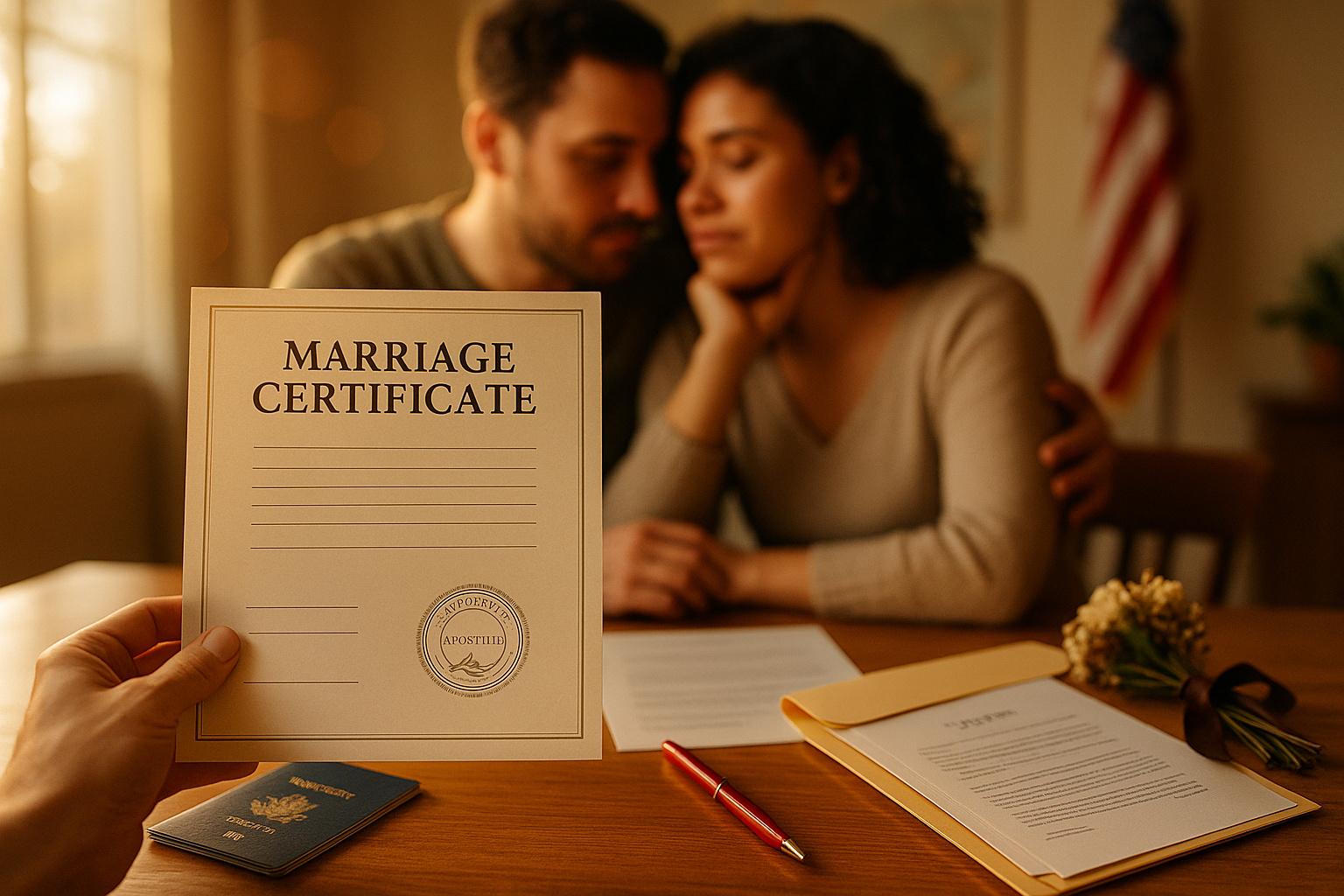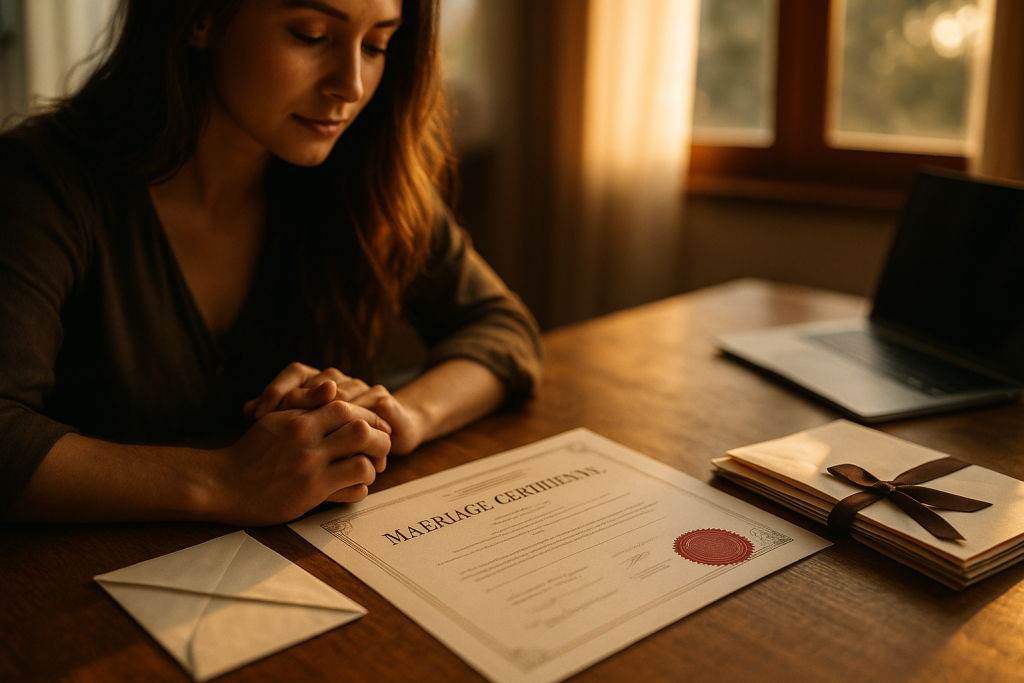Embarking on the journey of immigration is both exciting and complex, especially when it involves validating your marriage through official documentation. A key component in this process is ensuring your marriage certificate is properly apostilled and, if necessary, translated. Let’s break down what this means and how to navigate these requirements smoothly.
Understanding the Apostille Process for Marriage Certificates
An apostille is an official certification that authenticates the origin of a public document, such as a marriage certificate, for use in countries that are part of the Hague Apostille Convention. This certification is crucial for your marriage certificate to be recognized internationally.
Why Is an Apostille Necessary for Immigration?
When applying for immigration benefits, foreign governments often require proof of marital status. An apostilled marriage certificate serves as verified evidence of your marriage, facilitating processes like spousal visa applications, residency permits, or citizenship claims.
Steps to Obtain an Apostille for Your Marriage Certificate
1. **Obtain a Certified Copy**: Ensure you have a certified copy of your marriage certificate from the issuing authority.
2. **Submit to the Appropriate Authority**: Depending on where your marriage was registered, submit your certificate to the relevant state or federal office for apostille certification.
3. **Receive the Apostille**: Once processed, your marriage certificate will bear the apostille, confirming its authenticity for international use.
Do You Need a Translation Along with the Apostille?
If your marriage certificate is in a language other than the official language of the country where you’re applying for immigration, a certified translation is typically required. This ensures that immigration officials can accurately assess your documents.
How to Secure Certified Translations for Your Marriage Certificate
1. **Choose a Qualified Translator**: Select a translator experienced in legal documents and familiar with the requirements of the immigration authorities.
2. **Ensure Certification**: The translation should come with a signed statement attesting to its accuracy and completeness.
3. **Verify Acceptance**: Confirm that the translated document meets the specific standards of the immigration office you’re dealing with.
Common Challenges and How to Overcome Them
**Processing Delays**: Start the apostille and translation process well in advance to account for any unforeseen delays.
**Document Rejections**: Double-check that all documents are correctly certified and translated to avoid rejections.
**Country-Specific Requirements**: Research the specific requirements of the country you’re immigrating to, as they can vary.
FAQs
Q: How long does it take to get an apostille for a marriage certificate?
A: Processing times vary by state and country but can range from a few days to several weeks. It’s advisable to check with the issuing authority for specific timelines.
Q: Can I apostille a photocopy of my marriage certificate?
A: Generally, only original or certified copies are eligible for apostille. Photocopies are typically not accepted.
Q: Do all countries require an apostille for marriage certificates?
A: Countries that are members of the Hague Apostille Convention require an apostille. Non-member countries may have different authentication requirements.
Q: Is notarization the same as an apostille?
A: No, notarization is a different process. An apostille certifies the authenticity of the document for international use, while notarization is a domestic certification.
Q: Can I translate my marriage certificate myself?
A: Self-translations are generally not accepted. It’s best to use a certified translator to ensure accuracy and acceptance by immigration authorities.
Ensuring your marriage certificate is properly apostilled and translated is a vital step in the immigration process. By understanding and following these requirements, you can help ensure a smoother journey toward your new life abroad.
For personalized assistance with apostille and translation services, feel free to contact us. We’re here to help you navigate these processes with ease.




